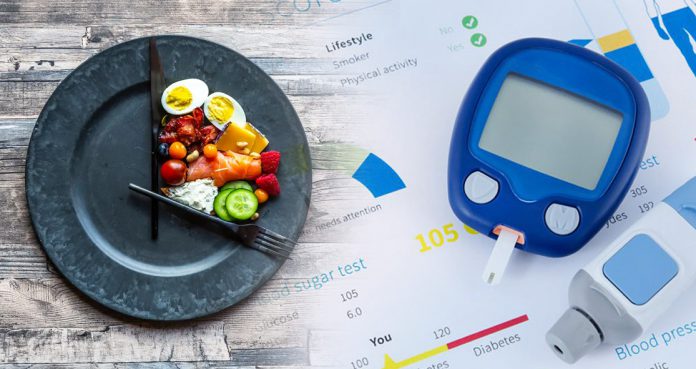Fast for 16 hours and eat what all you want in the remaining 8 hours – that’s what intermittent fasting is all about.
The intermittent fasting diet has been trending and it may sound like a good deal for people who are looking to lose weight and bring down their hemoglobin A1c (HbA1c) levels under control. But, is that a good idea? Is it good for people with type 2 diabetes?
Well, a study conducted in New Zealand, which was published last year in Diabetic Medicine, suggested that the intermittent fasting plan could be effective at controlling blood sugar levels. The study found that although the risk of low blood sugar was increased with the intermittent fasting, people still managed to lose weight and have low HbA1c levels.
However, three endocrinologists from the United States said otherwise and explained that there are much better ways to manage type 2 diabetes.
The study participants were asked to eat whatever they want for five days a week and then fast for the next two days. This 5:2 intermittent fasting plan was done for 12 weeks. Some participants with type 2 diabetes were instructed to follow this plan, while some were asked to fast on non-consecutive days. The participants were on a variety of diabetic medications.
The researchers monitored their blood sugar levels, HbA1C levels, weight loss, and other parameters.
Overall, 15 participants experienced a few events of low sugar levels. In fact, their risk of having low blood sugar levels doubled on their fasting days. The rates of blood sugar levels and weight loss were the same in both consecutive and non-consecutive groups.
In the consecutive fasting (5:2) group, the participants lost around 7 pounds and had a reduction in HbA1c from 8.4 to 7.8 by the end of the 12-week study period. In the non-consecutive fasting group, the participants lost around 8 pounds and had a reduction in HbA1c from 8.2 to 7.5, suggesting that there was no significant difference.
The researchers wrote, “Our study protocol could be adopted for the longer-term studies that will be required to assess the tolerability and sustained efficacy of an intermittent fast.”
However, Endocrinologist Dr. Scott Isaacs at Emory University School of Medicine, Atlanta, said, “It [intermittent calorie restriction] is not very effective.”
“The study showed minimal weight loss over the 12-week period of about 6 to 7 pounds, which is less than the typical weight loss on a standard low-calorie diet,” he added.
Dr. Isaacs suggested, “Focus on a healthy low-calorie meal plan instead. Clearly following a low-calorie meal plan every day is superior to being on a very low-calorie diet for two days out of the week.”
Dr. Angela Fitch from the University of Cincinnati College of Medicine/UC Health explained that intermittent fasting could be an option for patients with type 2 diabetes but they should check with their doctor to understand how to manage their diabetes with medications on the fasting days.
“However, the most consistent way to lose weight and keep it off when you have type 2 diabetes is limiting the carbohydrates in your diet,” said Dr. Fitch.
She said it is important to choose quality carbs; for instance, she advised eating carbs with higher fiber content such as cauliflower than white rice. The takeaway is if you have type 2 diabetes and want to lose weight and keep your blood sugar under control, check with your doctor to understand whether or not an intermittent fasting plan is a good option for you.























